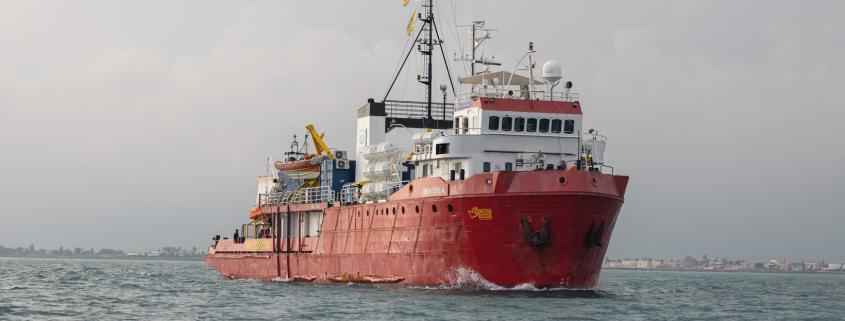Sea-Eye criticizes Italy’s new code of conduct for sea rescue NGOs
Italy massively interferes with the rights of the flag state Germany, European law and human rights guarantees.
With new rules of conduct at the end of the year, the Italian government wants to further complicate the work for civilian sea rescue organizations and, according to legal experts from Sea-Eye’s Legal Team, massively interferes with the rights of the flag state Germany, European law and international and regional human rights guarantees.
“According to the version of the decree available to us and a preliminary assessment of its legal content, it is likely to be unlawful insofar as it seeks to regulate the conduct of German-flagged vessels in international waters and to sanction them upon entry into the Italian territorial sea. The coastal state has no authority to regulate and enforce the rescue of foreign ships beyond its territorial sea (12 nautical miles). Thus, Italy cannot dictate how rescue operations in international waters are to be conducted, as this is a matter for the flag state (in the case of Sea-Eye Germany). Even according to the International Convention on Maritime Search and Rescue, Italy as a coastal state (and only in its own Search and Rescue Zone) can only coordinate and issue instructions, the enforcement of which, according to international and German law, is then in turn the responsibility of Germany as the flag state. Moreover, neither the International Convention on Maritime Search and Rescue nor the Guidelines of the International Maritime Organization provide a basis for the rules of conduct demanded by Italy”, says Prof. Dr. Valentin Schatz, member of the Sea-Eye Legal Team.
Italy is therefore interfering with Germany’s freedom of navigation under Article 87 of the United Nations Convention on the Law of the Sea without any basis in international law by regulating the conduct of German ships in international waters and threatening them with fines and the seizure of ships. It should be noted here that Italy has already been convicted in 2019 in a case before the International Tribunal for the Law of the Sea in Hamburg (The M/V “Norstar” Case [Panama v. Italy], Judgment of 10 April 2019, paragraph 222) for a similar unjustified interference with Article 87 of the Law of the Sea Convention.
“It follows from the EU Directive on common procedures for granting and withdrawing international protection that EU member states must provide information on asylum applications. This also applies at the EU border. But this duty cannot be shifted to civilian sea rescue organizations or to the crews of rescue ships. Rather, it is the duty of the EU coastal state or the EU border state concerned. Similarly, the duty to conduct asylum procedures is a coastal state obligation,” says Prof. Dr. Anuscheh Farahat, member of the Sea-Eye Legal Team.
“Sea-Eye will not follow any illegal code of conduct or any other official directive that violates international law or the laws of our flag state. In our case, these are the laws of the Federal Republic of Germany. We therefore reject this so-called code of conduct and fear that this will lead to conflicts with the Italian authorities. We therefore expect the Federal Government to protect the sea rescue organizations under German flag from the illegal behavior of the Italian authorities and to support us decisively in case of conflict. Any delay in our operations endangers human lives,” says Dr. Annika Fischer, member of the board of Sea-Eye e.V.



